The government says the coronavirus rules are tough enough. The problem is compliance
I've been looking at the data and it says something quite different… sort of
A THREAD on what’s going on
I've been looking at the data and it says something quite different… sort of
A THREAD on what’s going on
This chart comes from the UCL’s brilliant covid-19 social study, which regularly asks more than 70,000 people about their experience of lockdown
It shows that compliance is higher than at any point since the first lockdown
It shows that compliance is higher than at any point since the first lockdown
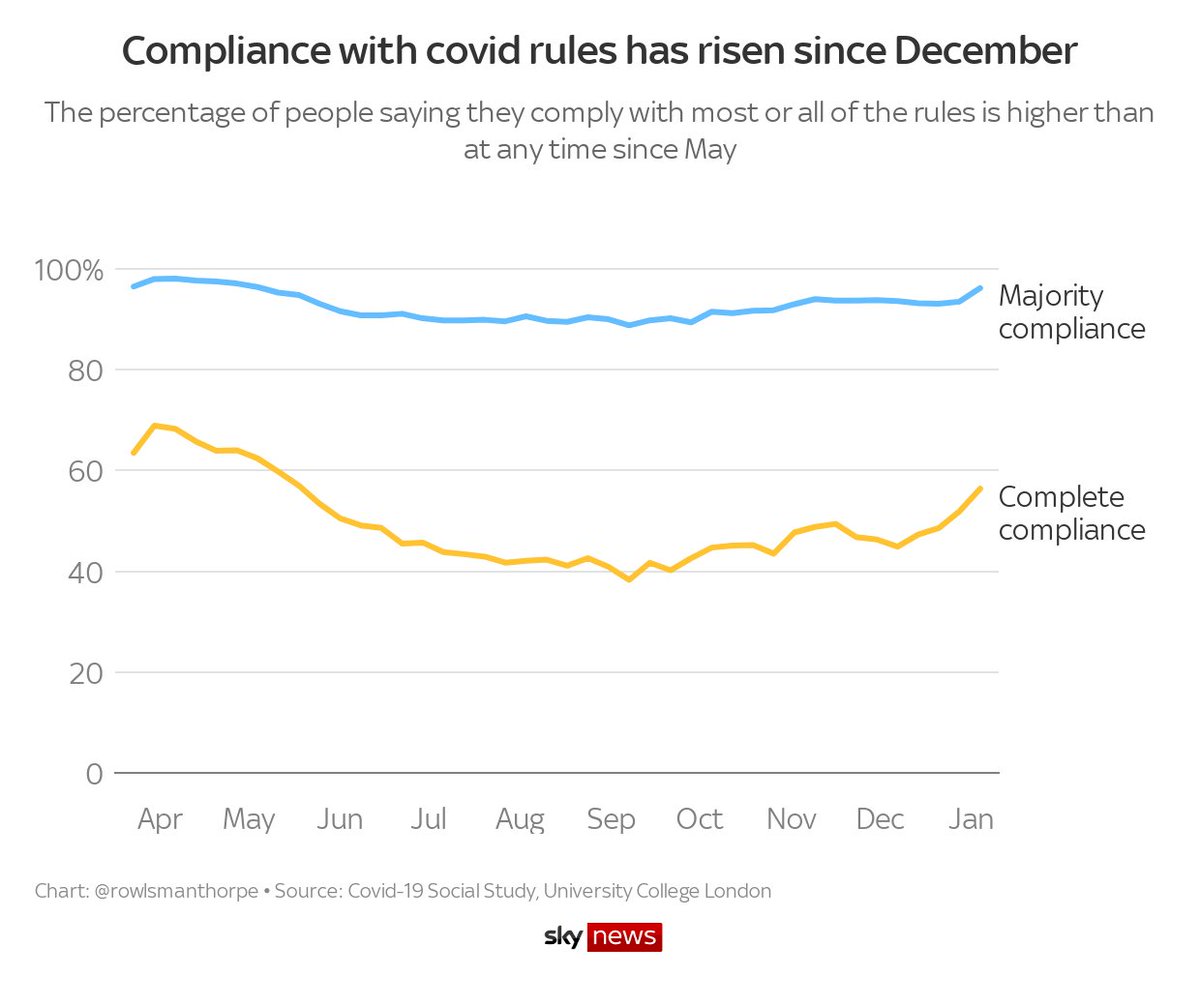
The UCL survey distinguishes between majority compliance (following most of the rules) and complete compliance (following all the rules)
Both have been rising sharply since December – basically in line with the virus
Both have been rising sharply since December – basically in line with the virus
Majority compliance is now at 96%, the highest since April
Complete compliance is now at 56%, the highest since May
With one crucial exception, which I'll get to later, self-reported compliance is really very good
Complete compliance is now at 56%, the highest since May
With one crucial exception, which I'll get to later, self-reported compliance is really very good
Which rules are people breaking and bending? The covid social study gives can tell us
Meeting up with more than the recommended number of people is where people tend to ignore the rules outright (never here means "I never obey that rule")
But again, generally adherence is good
Meeting up with more than the recommended number of people is where people tend to ignore the rules outright (never here means "I never obey that rule")
But again, generally adherence is good
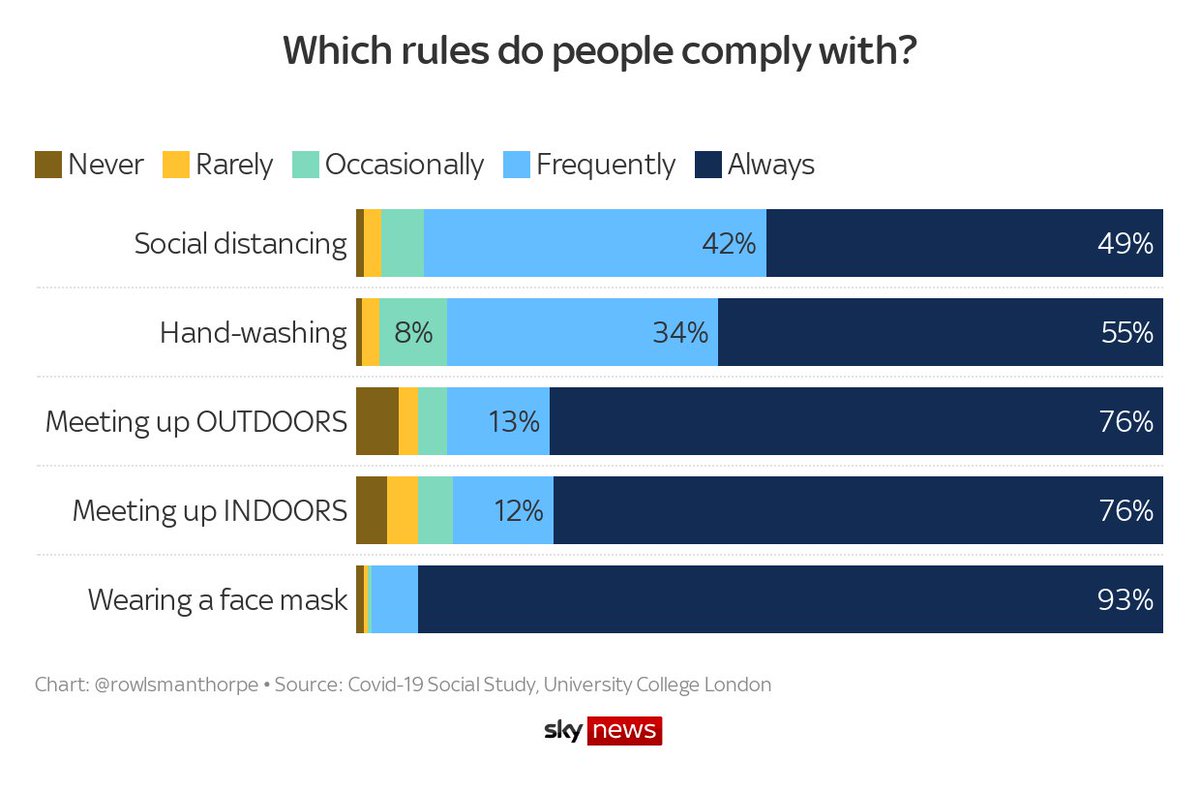
Since I published this piece yesterday, I've had two overwhelming reactions: surprise and disbelief.
If compliance is this good, people say, then why aren't cases falling faster?
news.sky.com/story/covid-19…
If compliance is this good, people say, then why aren't cases falling faster?
news.sky.com/story/covid-19…
Of course they may well be right, but it does feel as if compliance is now one of things, like crime, where no amount of data will convince people that things are actually improving
Still, to take the question seriously – looking at the data, four reasons stand out
Still, to take the question seriously – looking at the data, four reasons stand out
First, the virus is more transmissible. Yes, it’s obvious, but it’s worth repeating
Second: the rules are looser. You can see this in the movement data. It’s roughly between lockdown 1 and 2, which is about what you’d expect based on the rules
Second: the rules are looser. You can see this in the movement data. It’s roughly between lockdown 1 and 2, which is about what you’d expect based on the rules
https://twitter.com/rowlsmanthorpe/status/1348739381151080452
Retail is a really interesting case study
This chart shows retail footfall via @Springboard_: it’s highest in retail parks, where more shops are open and there’s more chance to be distant
This chart shows retail footfall via @Springboard_: it’s highest in retail parks, where more shops are open and there’s more chance to be distant
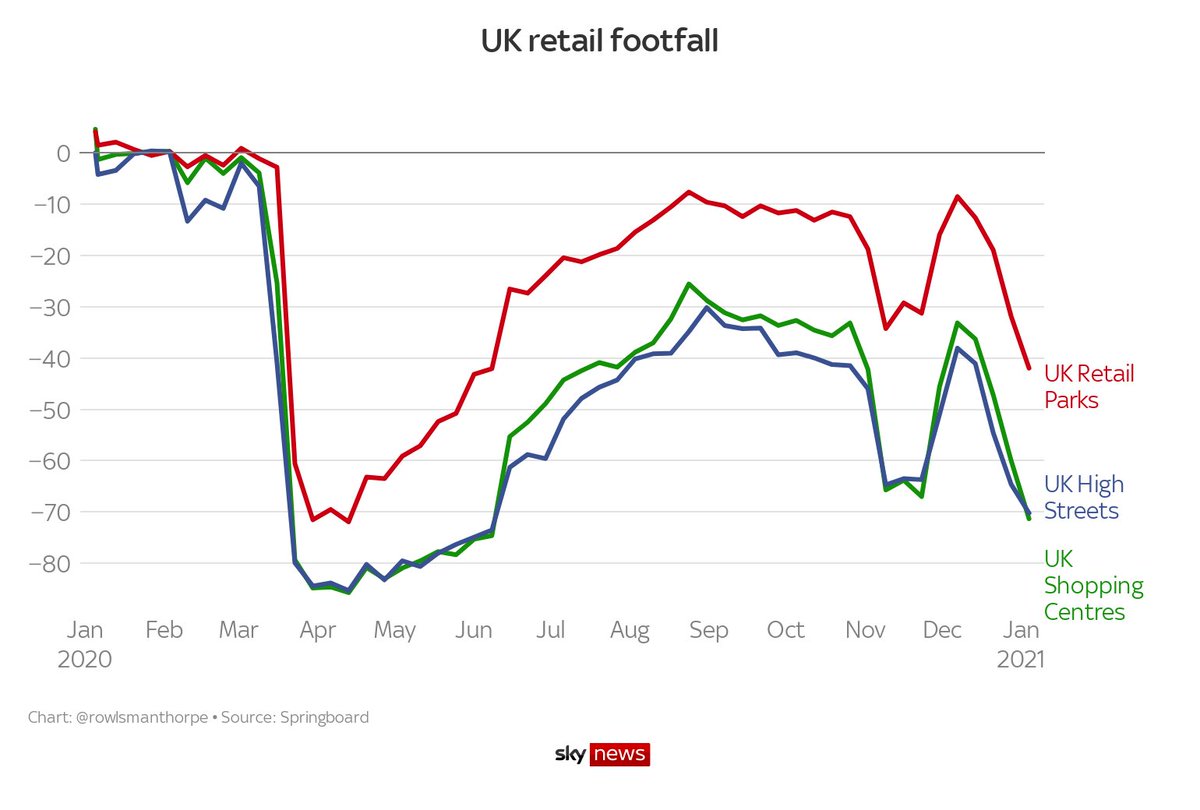
To me this suggests people are respecting the rules but also taking advantage of available opportunities
Ministers have urged people to stay at home so I guess you could say this is rule-breaking, but shops *are* open
If you want to stop shopping, you might need to close shops
Ministers have urged people to stay at home so I guess you could say this is rule-breaking, but shops *are* open
If you want to stop shopping, you might need to close shops
(I meant to say there were three reasons rather than four, so count taking advantage of opportunities as reason three, or 2.5 or whatever. Anyway, the point is that you can move around quite a bit *and* still be within the rules)
The final reason is by far the most important
There is one rule that seems to be being routinely ignored - and it's probably the most important rule we have
There is one rule that seems to be being routinely ignored - and it's probably the most important rule we have
The covid social study asked people how many days they isolated for after they had symptoms
This results are frankly horrifying
This results are frankly horrifying
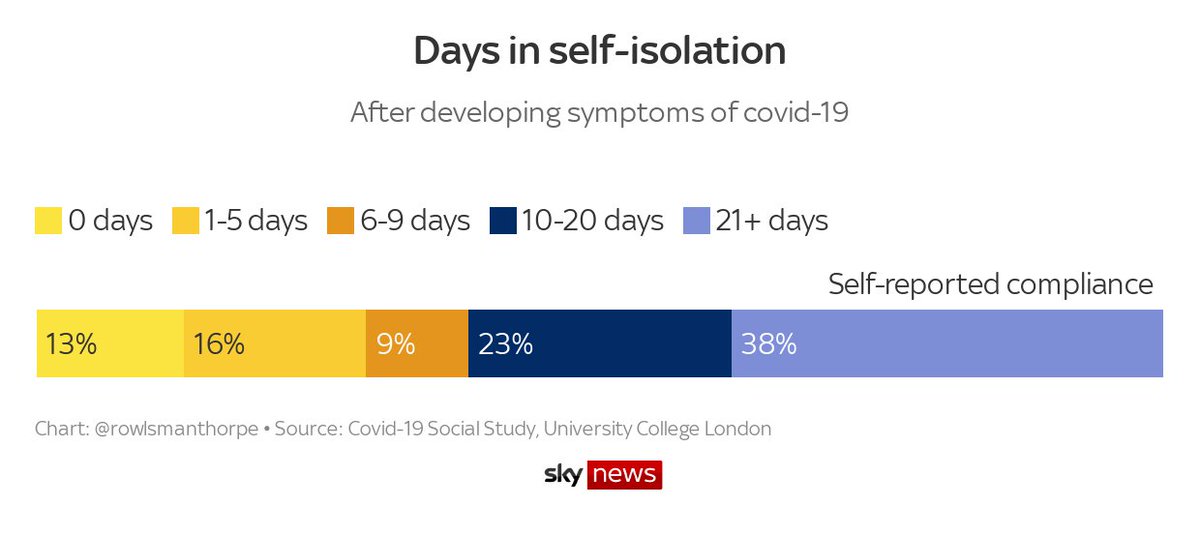
Isolation with symptoms is THE rule. Next to that, everything else pales into insignificance
But for some reason ministers don't seem to focus on it. Instead, we hear about breaches of social distancing in supermarket queues
But for some reason ministers don't seem to focus on it. Instead, we hear about breaches of social distancing in supermarket queues
I asked @ScienceShared for his thoughts on what could be done. This is long, but it's really worth reading all of it 
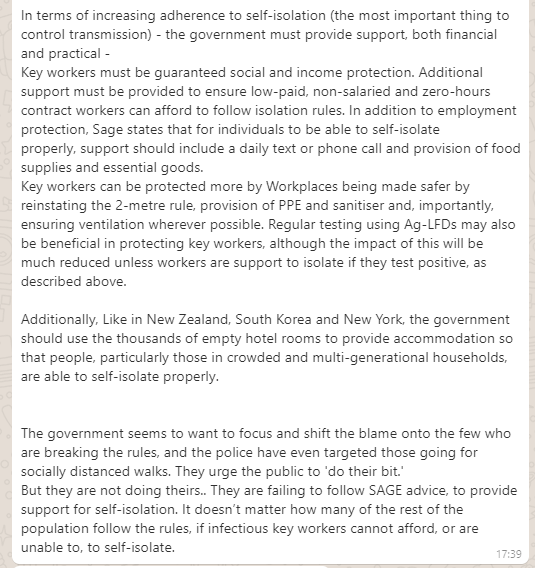
To end this embarrassingly long thread. The data suggests people ARE sticking to the rules, except the rule that matters above all others
I would humbly suggest that we need to shift our focus / ENDS
I would humbly suggest that we need to shift our focus / ENDS
Forgot to link to the covid social study. It is such a fantastic resource. Its results should really be better known covidsocialstudy.org/results
Huge credit to @Daisy_Fancourt and team for all their creativity and persistence
Huge credit to @Daisy_Fancourt and team for all their creativity and persistence
I hate quote tweeting rather than replying directly but I will just so I can add this to the thread
I'd say we should believe it, because Springboard measure footfall with tracking cameras. this isn't a survey, it's direct observation
I'd say we should believe it, because Springboard measure footfall with tracking cameras. this isn't a survey, it's direct observation
https://twitter.com/chrissimons5/status/1349467478762643457?s=19
For people asking: yes, there is demographic information on who does and doesn’t isolate. The main difference this survey pinpoints is between older and younger adults, although perhaps not the way you might think 
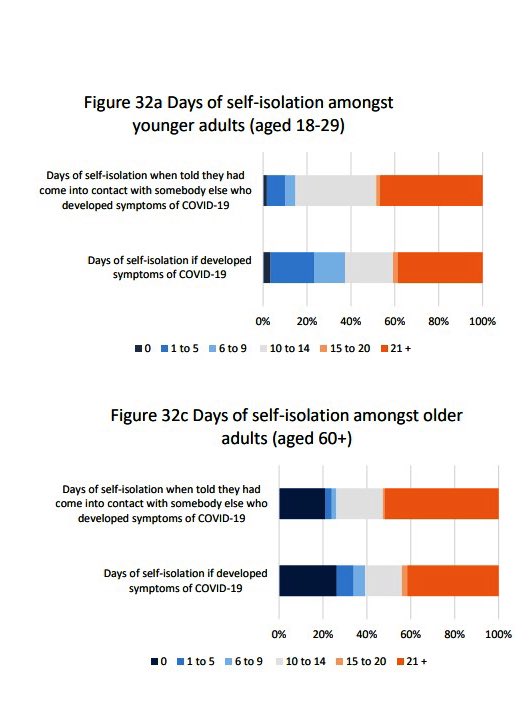
This is right and it's a puzzle to me as well. The researchers say it's related to people still experiencing symptoms. Hard to know what to make of that and I've asked for more clarity
https://twitter.com/shinyford/status/1349660092304650240?s=19
I tend to trust the conclusion on non-compliance because it echoes other large studies. This big survey found that only 18% of people isolated with symptoms - worse than the results in the covid social study kcl.ac.uk/news/effective…
• • •
Missing some Tweet in this thread? You can try to
force a refresh







